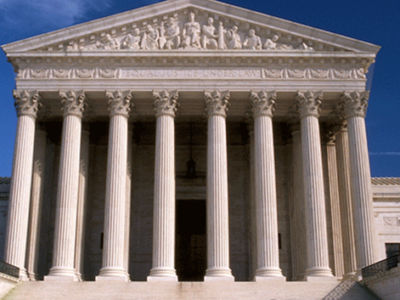
The Facilities for Medicare and Medicaid Companies on Friday finalized adjustments to the Doctor Self-Referral Legislation, also called the Stark Legislation, which prohibits a doctor from sending a affected person for a lot of sorts of companies to a supplier that the doctor owns, is employed by, or in any other case receives fee from.
WHY THIS MATTERS
These federal laws have burdened suppliers with added administrative prices and impeded the healthcare system’s transfer towards value-based reimbursement, CMS stated.
The previous federal laws have been designed for a system that reimbursed suppliers on a fee-for-service foundation, during which the monetary incentive was to ship extra companies. Nevertheless, the healthcare system is more and more transferring towards monetary preparations for fee tied to worth, CMS stated.
HIMSS20 Digital
Study on-demand, earn credit score, discover merchandise and options. Get Began >>
With suppliers taking over the accountability for the overall value of care for his or her sufferers, the dangers relating to self-referral have modified. Nevertheless, ambiguities within the Stark regulation have frozen many suppliers in place, fearful that even useful preparations would possibly violate the regulation, which might include dire and expensive penalties, CMS stated.
The American Hospital Affiliation applauded the transfer.
Tom Nickels, govt vp of the AHA stated, “The AHA has lengthy referred to as for the power to coordinate care amongst suppliers to offer complete affected person care. Outdated laws created pointless roadblocks to the type of collaboration and coordination that allows caregivers to satisfy all of their sufferers’ healthcare wants, whether or not within the hospital, the physician’s workplace or their very own houses. The adjustments finalized ought to assist to exchange quite a few waivers of those identical laws wanted to experiment with collaborative and revolutionary care and take away ‘impediments to sturdy, revolutionary packages’ famous in a 2016 report from the Division to Congress.”
THE LARGER TREND
Issues relating to the Stark rule’s bureaucratic limitations to worth have been one of many prime considerations raised by suppliers when CMS held listening classes in 2017 as a part of its “Sufferers over Paperwork” initiative.
This has resulted in healthcare suppliers spending tens of millions of {dollars} complying with laws and has impeded the transfer towards worth, not simply in Medicare, however throughout all payers, together with Medicaid and personal well being plans.
The rule finalizes most of the proposed insurance policies from the discover of proposed rulemaking issued in October 2020.
Except in any other case specified, all the provisions on this rule will go into impact 60 days from the rule’s show date within the Federal Register.
ON THE RECORD
“After we kicked off our Sufferers Over Paperwork initiative in 2017, we heard repeatedly from front-line suppliers that our outdated Stark laws saddled them with pricey administrative burden and hindered value-based fee preparations,” stated CMS Administrator Seema Verma. “That sound you hear is the mingled cheers and exclamations of aid from medical doctors and different healthcare professionals throughout the county as we raise the burden of our punishing forms from their backs.”
“The Premier healthcare alliance strongly helps the administration’s closing guidelines to modernize the Stark doctor self-referral regulation and anti-kickback statute,” stated Blair Childs, senior vp, Public Affairs at Premier. “ACO leaders in Premier’s data-driven collaborative and different well being system leaders have recognized these as important adjustments to the Medicare program that create readability and take away limitations to innovation and high quality care.”















